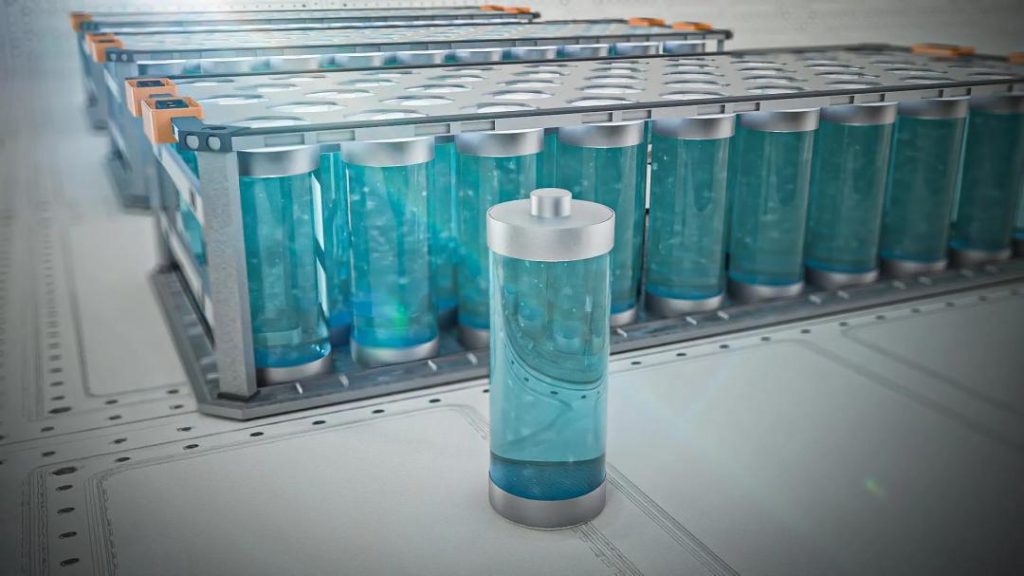
Scientists Discover Salt that Makes Batteries Last 10x Longer
In a breakthrough discovery, scientists at King Abdullah University of Science and Technology (KAUST) in Saudi Arabia have found that zinc sulfate can make water-based batteries last over 10 times longer than usual. This revolutionary discovery has the potential to transform the way we power our devices, from smartphones to electric vehicles, and could significantly reduce electronic waste.
According to a recent study published in the journal Science, the team of researchers led by Dr. Ahmed El-Shafey discovered that zinc sulfate can prevent damaging chemical reactions on the battery’s anode, the part that stores and releases energy. This is achieved by binding “free water” molecules, which are typically present in water-based batteries.
“Free water” molecules are a common issue in water-based batteries, as they can react with battery materials, reducing performance and lifespan. This reaction, known as electrolysis, occurs when the water molecules break down the battery’s anode, leading to a rapid decline in the battery’s capacity. The resulting damage can cause the battery to fail prematurely, leading to electronic waste and increased costs.
However, the team at KAUST found that by adding zinc sulfate to the battery, they could prevent this reaction from occurring. The salt binds to the “free water” molecules, preventing them from reacting with the battery materials and preserving the anode’s integrity.
In their study, the researchers tested the zinc sulfate-infused water-based batteries and found that they were able to achieve a significant increase in lifespan. The results showed that the batteries lasted over 10 times longer than usual, with some even reaching a lifespan of over 10,000 charge-discharge cycles.
The implications of this breakthrough are significant. Water-based batteries are a promising alternative to traditional lithium-ion batteries, as they are safer, more environmentally friendly, and potentially cheaper to produce. However, their limitations have held back widespread adoption.
“This discovery has the potential to unlock the full potential of water-based batteries,” said Dr. El-Shafey in a statement. “We believe that our findings could lead to the development of more efficient and sustainable battery technologies, which could have a major impact on the way we power our devices and vehicles.”
The researchers are now working on scaling up the production of zinc sulfate-infused water-based batteries and exploring its applications in various industries. They are also investigating the potential of other salts to achieve similar results, with the goal of creating a range of battery solutions that can meet the needs of different industries and applications.
As the world continues to grapple with the challenges of climate change, energy storage is becoming an increasingly critical component of the global energy mix. The discovery of zinc sulfate’s ability to extend the lifespan of water-based batteries is a significant step forward in the development of more sustainable and efficient energy storage technologies.
Source:
https://www.sciencedaily.com/releases/2025/07/250726234421.htm






